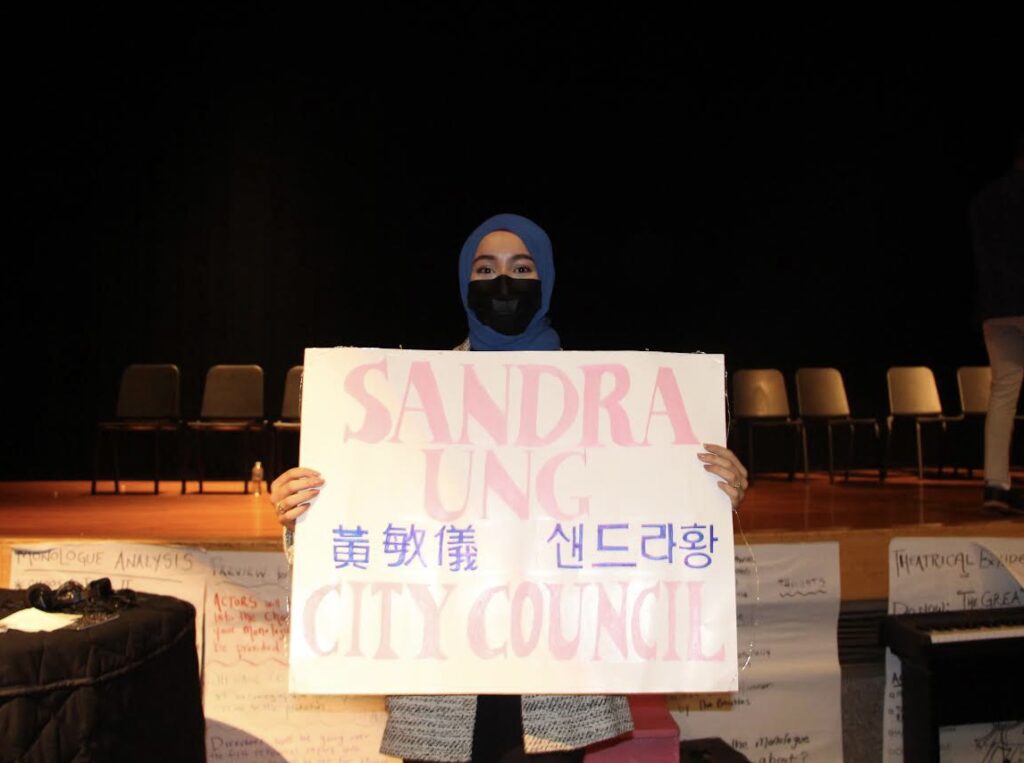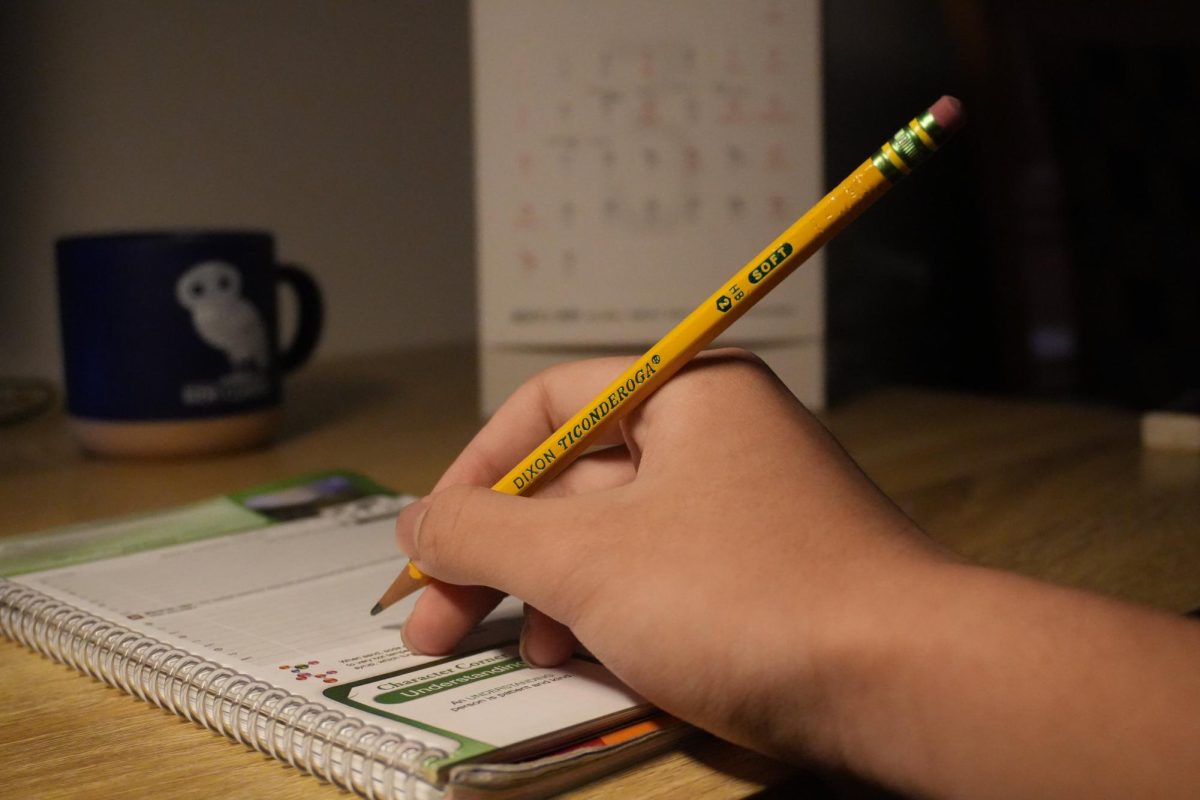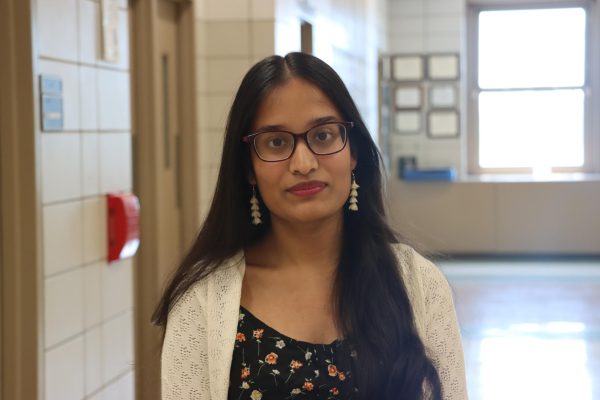
On the evening of May 2, a draft opinion from the Supreme Court leaked, published by POLITICO, outlining the court’s possible decision to overturn the historic case of Roe v. Wade. The decision would overturn a precedent for legal abortion access and female bodily autonomy. This leak caused an uprising in young adults who took to various platforms to express their outrage and rightful concerns for the future of women all across the country. Townsend Harris was not exempt. Moments after the article was published, students posted on social media to spread the message.
While this shocking potential Supreme Court ruling has sparked more of a response from THHS students than most current events, it is one of many examples of how politics impact student conversations. While this online engagement does help foster a more politically aware community, it may also have some unforeseen negative effects. Some students may get their information from sources that are not factually correct or who spread misinformation and propaganda to help establish one narrative to support a certain political bias.
During the fall semester, Townsend Harris offers a political experience that submerges the entire student body into the world of politics and government. However, come mid-November, that cultivated civic engagement seemingly just disappears until the next round arrives the following school year.
The Election Simulation at THHS is an annual project that allows seniors to play the part of politicians who are running for office, and requires them to be responsible for managing campaigns as well as convincing their fellow peers to vote for them in the November “election.” While it does a reasonable job at bringing to light multiple significant political issues, there should be more open discussions held between the candidates and students in moments involving pressing topics, for students to cultivate awareness for the issues that affect everyone around them. The Election Simulation has become a main feature of THHS for how it introduces and informs students about the current policies and politics that impact them, so why shouldn’t its goals be expanded further?
Political discussions are already commonplace in some classrooms, but since it’s inevitable that politics will continue to become increasingly relevant to student learning, THHS should address this by further fostering political literacy, and incorporating regular current events discussions that build on the successes of what the Simulation introduces in the fall.
Gabriela Quizhpi, a senior who played Tiffany Caban this past fall, reflected on how the lessons that the Simulation teach can be further cemented: “[The Election Simulation] deserves credit for attempting to educate our students about politics and issues that are of public interest. Since Election Simulation is a seasonal event, I think students would benefit from delving more into modern events and concerns [where they would] not only learn about things that are directly affecting them, but develop an open mind to think critically about the main curriculum in their classes.”
Goria Jamon, a current freshman at THHS, sees great importance in implementing an open community in which students are able to voice and exchange their opinions on controversial matters. “I think that it’s important that Townsend does spread awareness [about these issues]. Yes, [it is true that] we live in a world where social media is our main source of receiving news but that does not mean that various sorts of propaganda do not exist. If these topics directly affected me, I would think it’s important that my community can speak upon it and spread the right kind of news.”
Politics, as a concept, should be brought up in history classrooms as they affect our daily lives. Even if some people believe that we, as teenagers, are too “young” to be aware or even concerned with civic issues or topics, the reality is that they will soon be our problem to deal with. Being politically aware will not only allow us to form our own opinions but also allow us to view the world from a more informed perspective. THHS should aim to have social studies classrooms and teachers prepared to hold open and informed dialogue among students to address major developments in the real world, which will help foster a greater environment.
Weekly discussions should be held in each history classroom by teachers in a way that does not show a certain political bias and leaves room for the attendees to form their own opinions. Students should be encouraged to voice their perspectives on the topic and have the opportunity to engage in healthy discourse. These debates will help students comprehend the factual information on issues while also being able to express themselves alongside opposing viewpoints.
While some educators may feel that these added-on discussions could take up the time needed to cover imperative academic topics, it is crucial that we prioritize blending these discussions into our curriculum. This would not stray away from the required topics that must be covered but rather adds topicality so that students can engage and refine their understanding of how history ties into present-day issues.
As a school that prides itself on being diverse, it is absolutely necessary that we strive to create an environment where all students, no matter their political leanings, feel comfortable expressing themselves. They will be able to be in a safe space where they will feel respected, and in turn, learn to be respectful to others as they widen their understanding of the issues that we face today.
Photo by Kate Romero, Photography Editor




























